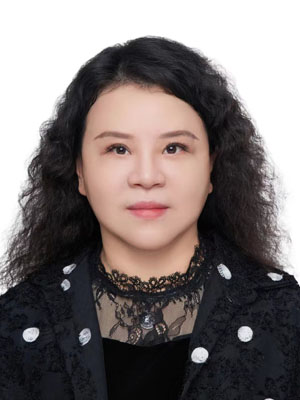 |
European Academy
|
| Home page | Энциклопедия ЕАЕН | |
Энциклопедия Европейской академии естественных наук |
||
 Yi Eve Sun
Yi Eve Sun
Dr. Yi Eve Sun, is currently Professor and Chair of Department of Stem Cell and Regenerative Medicine, Tongji University School of Medicine, the executive director of the Shanghai Institute of Stem Cell Research and Clinical Translation, and of the Chinese National Base for International Collaborations in Stem Cells and Regenerative Medicine, and deputy director of NMPA Key Laboratory for Research and Evaluation of Viral Vector Technology in Cell and Gene Therapy Medicinal Products. She was recruited by the Chinese Government as one of the Chinese National Appointed Leading Scientists. She used to be a tenured full professor at University of California at Los Angeles (UCLA), as well as the Associate Academic Director of UCLA Institute for Stem Cell Biology and Medicine (ISCBM).
She has made continuous contributions in the field of neural stem cell biology, neural repair, and autism spectrum disorders including Rett syndrome (RTT), by studying the function of MECP2 gene in neural stem cells and the establishment of disease-in-dish models through human pluripotent stem cells. She and her collaborators are the first to use gene-editing to establish non-human primate RTT models, which showed striking phenotype, resembling the human disease, and her work was published in Cell Stem Cell (2014), and Cell (2017). She also discovered that endogenous CD133 positive ependymal quiescent adult neural stem cells are the seeds for neural regeneration through single-cell sequencing, which was published in Cell (2015). She postulated the fundamental underlying logic for Neural Repair, i.e., “under non-inflammatory and neural trophic environment, endogenous neural stem cells will be activated to generate new neurons, which subsequently form new neural networks to be integrated into broken neural circuitries, and through plasticity, to re-establish or resume neural transmission and function”, which was published in PNAS (2015a/b, 2018).
In recent years, her work has taken systems biology-based approaches to study cross interactions amongst “gut microbiota-circulation immunity-CNS immunity-Neuronal function”. She initiated single cell transcriptome-based immune typing of individuals with different age, gender, and pathological conditions, aiming at targeting CNS diseases via the periphery, including reprograming autologous cells. She successfully invented a new reprogramming method to convert autologous dermal fibroblasts into rejuvenated mesenchymal stem cells, called “Prometheus Cells”, which start to demonstrate great therapeutic values in treating ALS (a neural degenerative disease) and reverse aging. Prometheus cells not only put “a break” on disease progression, but also improved function, which has never been reported.
She has published 120+ papers in top journals, including 10 articles in Cell, Nature, Science. Total impact factors of her publications are more than 2000, with a total of more than 20,000 citations. Her H index (H-index) is 65. She has won a number of awards, including the Alfred P. Sloan Research Fellow, the Beckman Young Investigator Award, the Whitehall Foundation Research Award, the Klingenstine Neurobiology Research Award, the Shanghai Science and Technology Award for International Collaboration, and the Shanghai Science and Technology Award. She has served on many scientific boards and committees, including the Committee on Women in Neuroscience (C-WIN) within the Society for Neuroscience (SFN).
| Энциклопедия ЕАЕН |
¦ Impressum ¦ Datenschutzerklärung ¦ Contact